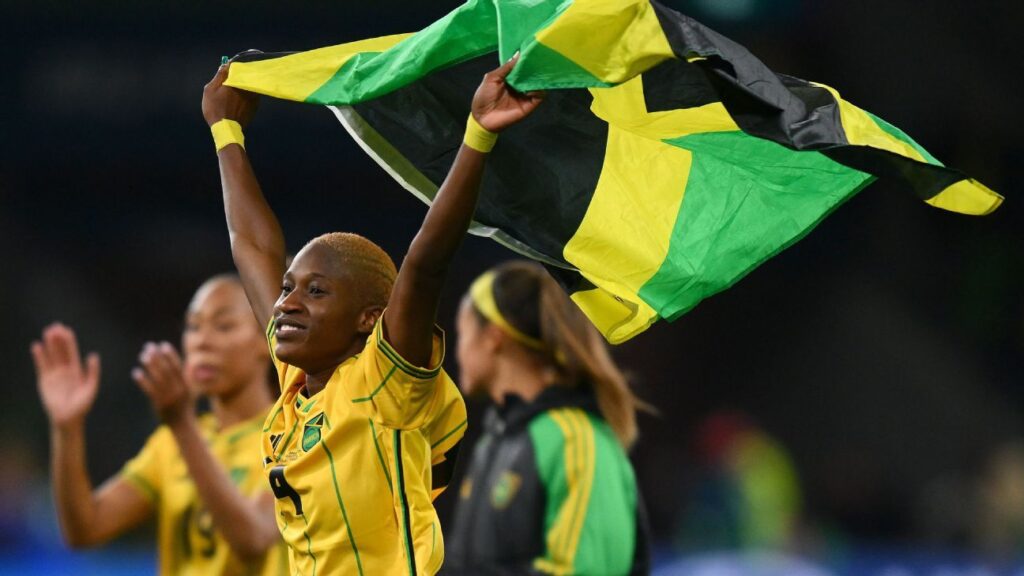BRISBANE, Australia — FIFA’s chief women’s football officer Sarai Bareman told ESPN the remarkable upsets at the Women’s World Cup justifies the decision to expand to 32 teams.
The call to expand the tournament from 24 to 32 teams received criticism at the time, with some feeling it would lead to a host of one-sided results in the pool stages. While there have been a couple of heavy defeats, the tournament in Australia and New Zealand has also produced some remarkable upsets.
– Stream on ESPN+: LaLiga, Bundesliga, more (U.S.)
Jamaica came through their group at the expense of Brazil while Germany and South Korea exited their group with Morocco and Colombia heading through. Nigeria also defeated hosts Australia 3-2, while Morocco, Jamaica and the Philippines got their first ever victories in the Women’s World Cup.
Bareman told ESPN the decision to expand the pool stages has been “100%” proven to be the right call.
“It’s been a really important strategic decision for us to expand the World Cup to 32 teams,” Bareman said.
“The flow on effects of this expansion, not only to the teams that are participating, but to those that are in the qualifying pathways, is already being found. Seeing the results here during the group stages has absolutely justified that was the right decision. I’m really happy and proud that we took that step.”
Bareman said she believes the gap between the traditional superpowers and the emerging nations is narrowing.
“I do think that’s what we are seeing play out at this World Cup. It’s really satisfying to see,” she said.
“In the last World Cup in France, I think it was seven out of the eight quarterfinalists with teams from Europe, which showed that there was a European dominance at that elite end of the game. To see some of those massive European teams being knocked out after the group stage is a great testament to the work that’s going on in the other regions, to develop women’s football in those countries.”
It hasn’t been plain sailing for those other regions, with several teams speaking publicly about issues with their own federations. Jamaica have been vocal in their criticism of the JFF, while South Africa, Nigeria and Zambia have also spoken out. Canada also reached some resolution with its federation midway through the group stage. Italy were also critical after their group-stage exit.
Bareman said she believes it is essential heading forward that these instances become less frequent to allow the players to focus on delivering on the field.
“I think it’s important that those players are able to focus, on the pitch during a World Cup. Of course, these issues do come up. We’ve seen it in previous World Cups, we see it in other sports and other tournaments as well,” Bareman added.
“FIFA provides a lot of support to our member associations around preparation, for a World Cup. And, you know, many of these countries are being exposed to a very professional high level of football at a World Cup.”
FIFA handed each nation a purse of $960,000 last October in the build up to the tournament to help pay for preparation costs including training camps and costs around friendly matches. After the tournament each federation must submit expenditure reports to FIFA detailing how the money was spent.
“It’s really important that FIFA supports the teams that qualify for the World Cup,” Bareman said. “We want to make sure that the teams have had the best possible preparation pathway, so part of that is also investing directly into that pathway. I’ve been very happy to see how those funds have been spent. The preparation is really showing on the pitch with some of the results.
“To see Jamaica, South Africa and Morocco qualify through to the round of 16 for the first time ever. New Zealand, the first Oceanian team to win a World Cup match, men or women. Philippines, Zambia, Portugal winning their first ever wins at Women’s World Cups. I mean these are incredible, historic moments and a part of those moments is the preparation and the work that’s been done and the build up to the event.”




